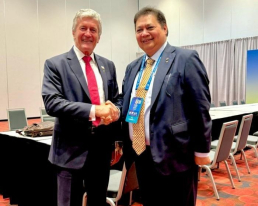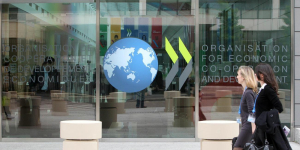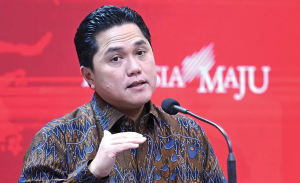The National Council of Special Economic Zones approves the establishment of three new Special Economic Zones
The National Council of Special Economic Zones (SEZ) has given the green light for the creation of three new SEZs—Setangga, Tanjung Sauh, and Nipa, in an effort to boost economic development.
Airlangga Hartarto, the Coordinating Minister for Economic Affairs, announced that the Council will recommend these three special economic zones to the President for official designation through government regulations.
Minister Airlangga highlighted that once designated, each SEZ will have a maximum of three years to become operational, with annual evaluations of the development progress.
Details of the New SEZs:
KEK Setangga in Tanah Bumbu, South Kalimantan:
- Area: 668.3 hectares
- Targeted Investment: IDR 67.69 trillion
- Employment Projection (by 2053): 78,999 jobs
- Key Industries: Refinery and biodiesel products, fractionation, rubber industry, nickel smelters, iron industry, and plywood industry.
KEK Tanjung Sauh in Riau Islands:
- Investment Commitment: IDR 199.6 trillion
- Employment Projection (by 2053): 366,087 jobs
- Key Industries: Electronic component manufacturing, assembly, and heavy industries.
KEK Nipa in Riau Islands:
- Investment Commitment: IDR 16.46 trillion
- Employment Projection (by 2073): 40,949 jobs
- Business Plan: Cargo trading with sales of finished and intermediate goods, aimed at optimizing economic opportunities in the outer islands.
Economic Contributions and job creation goals
The government envisions these SEZs as key drivers of economic growth, attracting significant investments and creating job opportunities.
The strategic locations and diversified business plans of Setangga, Tanjung Sauh, and Nipa aim to foster export activities, reduce import dependency, and contribute significantly to Indonesia's economic development.
Particularly noteworthy is the focus on KEK Nipa, strategically designed to optimize economic opportunities in remote islands.
The business plan of cargo trading aligns with the government's vision to leverage the unique economic potential of these outer islands.
With the creation of these SEZs, Indonesia is taking concrete steps toward enhancing economic activities, attracting investments, and generating sustainable employment.
The commitment to annual evaluations reflects the government's dedication to ensuring the success and impact of these SEZs on the nation's economic landscape.
Tag
Already have an account? Sign In
-
Start reading
Freemium
-
Monthly Subscription
30% OFF$26.03
$37.19/MonthCancel anytime
This offer is open to all new subscribers!
Subscribe now -
Yearly Subscription
33% OFF$228.13
$340.5/YearCancel anytime
This offer is open to all new subscribers!
Subscribe now






